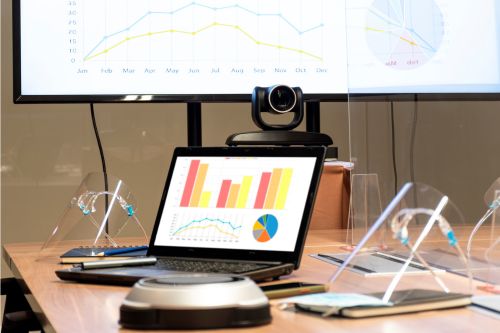Table of Contents
Econometrics course | Introduction
Econometrics is the statistical analysis of economic data, used to inform policy and business decisions. It is a powerful tool in the field of economics and can be applied to a wide range of areas, such as finance, international trade, and labor economics. In this article, we will explore the world of econometrics and introduce an online course that provides a comprehensive introduction to the subject.
What is an econometrics course?
Econometrics is the application of statistical and mathematical methods to analyze economic data. It seeks to quantify the relationship between different economic variables, such as income, inflation, and unemployment. Econometrics is used to make predictions about the behavior of economic variables and to test economic theories. Econometric analysis is used by governments, businesses, and academics to make informed decisions about economic policy and to understand economic phenomena.
Key concepts in econometrics include probability theory, statistics, and mathematics. Econometrics uses data sets to test hypotheses and to derive estimates of economic relationships. Econometric models are used to predict the behavior of economic variables and to understand how different economic variables affect each other.
Applications of econometrics

Econometrics has a wide range of applications, including in policy-making, business decision-making, and historical analysis. In policy-making, econometrics is used to evaluate the effectiveness of government policies and to make informed decisions about future policy. For example, econometric models can be used to estimate the impact of a tax cut on economic growth.
In business decision-making, econometrics is used to forecast demand for products, to estimate the impact of advertising campaigns, and to analyze the effect of changes in prices on demand. Econometrics is also used in financial markets to analyze the relationship between different financial instruments and to develop trading strategies.
Historians also use econometrics to study the economic past. For example, econometric analysis can be used to estimate the impact of slavery on the economy of the American South before the Civil War.
Statistical analysis of econometrics
Statistical analysis is a key component of econometrics. Econometric models use statistical techniques to estimate economic relationships and to make predictions about economic variables.
Regression analysis is a common statistical technique used in econometrics. It is used to estimate the relationship between a dependent variable and one or more independent variables. For example, a regression analysis might be used to estimate the relationship between income and education level.
Time-series analysis is another important statistical technique used in econometrics. It is used to analyze the behavior of economic variables over time. For example, time-series analysis can be used to analyze trends in unemployment rates over a period of years.
Panel data analysis is another statistical technique used in econometrics. It is used to analyze data from multiple individuals or entities over a period of time. For example, panel data analysis can be used to study the relationship between education and income for a group of individuals over a period of years.
Econometric software and tools

Econometric software is an essential tool for econometric analysis. There are many different software packages available, including Stata, R, and SAS. These software packages provide tools for data analysis, model estimation, and hypothesis testing.
When choosing econometric software, it is important to consider the needs of the user. Some software packages are more user-friendly than others, and some are better suited for specific types of analysis. It is also important to consider the cost of the software, as some packages can be quite expensive.
Advantages of taking an econometrics course
Choosing to study econometrics can have many advantages for students interested in economics, statistics, and data analysis. Some of the key advantages include:
- A versatile skillset: Econometrics provides students with a broad set of skills that can be applied across a variety of industries and fields. Graduates with econometrics skills are in high demand in fields such as finance, consulting, government, and academia.
- A deeper understanding of economics: Econometrics allows students to use statistical techniques to better understand economic phenomena. By analyzing data, students can test economic theories and make predictions about future trends, giving them a deeper understanding of how economies work.
- Practical application of statistics: Econometrics provides students with practical experience in statistical analysis and modeling. These skills can be applied to a wide range of fields beyond economics, making econometrics graduates attractive to employers in many industries.
- Strong career prospects: Graduates with econometrics skills are in high demand, and can expect to find job opportunities in a variety of fields. The job outlook for economists is also positive, with the U.S. Bureau of Labor Statistics projecting 14% job growth for economists between 2019 and 2029.
Key takeaways
- Overall, studying econometrics can be an excellent choice for students who are interested in the intersection of economics and statistics.
- With a solid grounding in both of these areas, students can go on to pursue a variety of exciting careers in fields such as finance, consulting, or public policy.
- If you’re interested in studying econometrics, it’s important to carefully research different programs and courses to find one that best fits your goals and interests.
- With the right education and training, you can become an expert in the art of using data to understand and analyze economic phenomena.
Did you find this blog helpful? Do share your perspectives about the blog in the comments below. Please get in touch with us by clicking here for more information. We would be happy to assist you with your queries.
FAQs
Q1. What kind of background is required for an econometrics course?
Answer: Typically, an econometrics course will require a background in statistics and/or economics. Some courses may also require knowledge of calculus.
Q2. What kind of careers can I pursue with an econometrics degree?
Answer: Graduates with econometrics degrees can pursue careers in a variety of fields, including finance, consulting, government, and academia. Specific job titles may include economist, data analyst, financial analyst, and policy analyst.
Q3. What kind of software is used in econometrics courses?
Answer: Econometrics courses may use a variety of software programs, such as Stata, R, or SAS, to conduct statistical analysis and modeling. It is important for students to familiarize themselves with these programs and develop their skills in using them.






